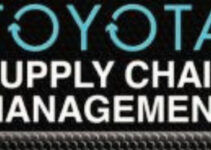The growth of e-commerce platforms and online stores has transformed the retail logistics processes due to the increased digital literacy awareness among customers. Factors like dual-income households, technological trends, and constant urbanization are impacting customer perception and choices in developing countries. Today, we’ll discuss retail logistics trends; key statistical facts and figures, and top 10 RL trends.
Many experts have criticized retail logistics for the mass volume of data and its overreliance on manual processes. But things are changing because retailers are implementing the latest technology like automation of various processes and warehousing robotics across their supply chain network and process.
Statistics Facts about Retail Logistics Trends
Some of the key statistical facts and figures about retail logistics trends are as follows;
- Global retail sales reached approximately 26.7 trillion US dollars by the end of 2022, and it annually increased by 6.6%
- Currently, the retail growth rate in the US market is 13.6%
- It will reach 26% by the end of 2025
- The retail logistics market will reach 388.63 billion US dollars by the end of 2030
Retail Logistics Trends – Top 10
Some of the top 10 retail logistics trends are as follows;
Supply Chain as a Service
The supply chain network of businesses and companies has become very large and complex over the years. Businesses and companies used to manage all the retail logistical processes in-house, but now they partner up with 3rd party service providers to outsource their following processes;
- Retail fulfillment
- Retail warehousing
- Manufacturing
- Procurement
Supply chain as a Service (SCaaS) is a form of business model that has become very popular over the years because it helps customers in the following ways;
- Receiving a competitive edge in various markets
- Low operational overhead
- Access to the latest and advanced supply chain technology
- Scaling up or down your operations relevant to the company’s needs
- Getting in touch with the larger and talented pool of capital resources and expertise
- Establishing flexibility in the supply chain processes
Sustainability
The consumer market has become highly cautious about environmental sustainability and how the actions of businesses impact the environment and nature and make them make conscious choices. That’s why sustainability has become a buzzword for various businesses in different industries.
For instance, environmental sustainability for businesses is much more than just biodegradable packaging or producing eco-friendly products and services. It comprises launching renewable energy methods and ethical practices in the company’s operations and collaborating with such retail logistics partners that have a commitment to environmental sustainability.
Autonomous Vehicles
Along with employing collaborative robots, the latest development in self-driving autonomous vehicles holds great potential for retailers to deal with the labor shortage. Autonomous vehicles and self-driving technology are still in the early stages of development.
Many world’s leading retailers have shown interest in employing autonomous vehicle technology for last-mile delivery. For instance, Amazon has filed for the delivery robots technology patents, and Walmart is working on the project of self self-driving delivery pilot program.
Collaborative Robots
It is no doubt human employees play a significant role in retail logistical operations. Companies have a great opportunity to amplify their order fulfillment efficiency and improve retail warehousing operations by investing in collaborative robotic technology. Such types of robots could work alongside human employees in packaging orders and managing inventory.
Collaborative robots are highly beneficial to the company during the peak season because they would fill the space for seasonal workers and the company doesn’t need to look for a temporary workforce. Retailers have various options and choices to rent collaborative robots; because it has become easier for them to scale up or down their business relevant to the needs and requirements.
Big Data Analytics
Businesses and companies generate and circulate mass volume of data in their daily routine operations. They have a great opportunity to employ the data analytical tools and technology to sift through the data and gain a key insight into the data.
If you are analyzing warehousing performance to recognize issues predict future sales demand and study route patterns for optimization. It comprises performing sentimental analysis on news reports to expect geopolitical conflicts. Companies have got a lot of opportunities to employ data analytics to amplify their retail logistics strategy.
Integration Technology
If you are employing radio-frequency recognition tags to analyze the flow of ships in real-time. It requires you to embed IoT-based sensors in the packages and materials to analyze humidity and temperature. However, retail businesses are looking for innovative and creative methods of amplifying transparency and visibility for retail fulfillment.
Omni-channel Retail Experience
The journey of modern customers comprises various points in the supply chain network and channel, and they could be physical or digital. Retail businesses should implement an omnichannel strategy for retail logistics. For instance, it helps customers to buy online; pick up, and return in-store; it offers a convenient customer experience to move goods from one point to another.
Blockchain Technology
Blockchain is a growing trend in the retail logistics industry. The blockchain is a form of database that gathers data in the form of blocks and chains them together. However, it plays a significant role in cryptocurrency and bitcoin and has earned wide popularity and publicity for its distributed and decentralized nature. Blockchain technology supports various retail logistics operations, and they’re as follows;
- Streamlining transactions
- Verifying product authenticity
- Securing online payments
- Transparency supply chain processes
Conclusion: Retail Logistics Trends – Top 10
After an in-depth study of retail logistics trends; we have realized that retail logistical processes are growing and adopting new methods and practices. If you are learning about the growth of retail logistical processes, then you should keep in mind the abovementioned top 10 trends.
Ahsan is an accomplished researcher and has a deep insight in worldly life affairs. He goes Live 3 days a week on various social media platforms. Other than research writing, he’s a very interesting person.


